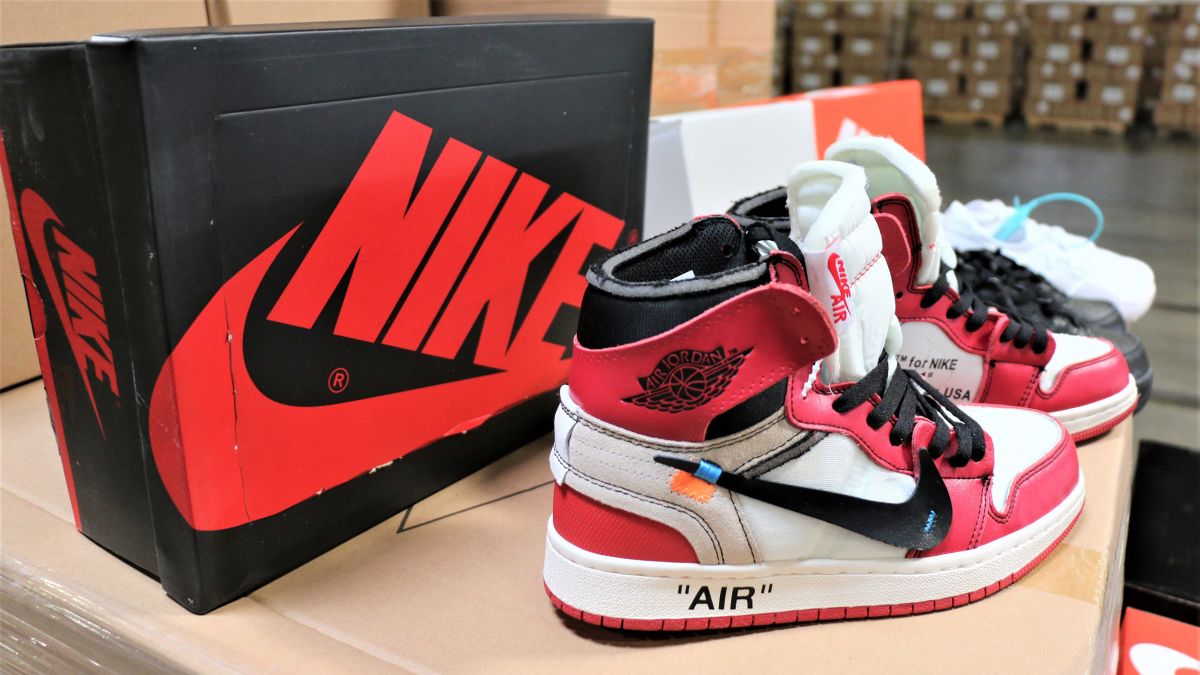The 2nd US Circuit Court of Appeals ruled that six Chinese banks weren't liable for $150 million in sanctions due to the failure of Next Investments LLC to freeze the assets of hundreds of Nike counterfeiters.
Next, which acquired the $1.8 billion default award from Nike Inc, had failed to enforce the freeze against the banks for nearly six years before asking the court to hold them in contempt, said US Circuit Judge Michael Park for a unanimous three-judge panel.
In 2015, Nike and its Converse Inc unit won the default judgment against over 600 Chinese entities and individuals in the Manhattan federal court.
US District Judge Shira Scheindlin also restrained the defendants and everyone acting in concert or in participation with them from transferring their assets.
Nike sold its interest in the judgment to Houston-based Next Investments LLC in 2017.
Next subpoenaed six Chinese banks with New York branches where the counterfeiters allegedly had accounts and filed contempt charges against them in 2019 for failing to comply with the asset restraining orders, asking $150 million in compensatory damages.
Senior US District Judge Colleen McMahon rejected Next's motion in 2020 as US branches of foreign banks are separate legal entities.
The separate entity rule also kept the court from enforcing the freeze as to assets in China.
On appeal, Next insisted that the separate entity rule shouldn't enable counterfeiting, among other things.
Park, Senior Circuit Judge Jon Newman, and Circuit Judge Steven Menashi declined to hold the banks in contempt or enforce the order.
On top of its failure to enforce the orders against the banks for nearly six years, Nike and Next "explicitly disclaimed" that they would invoke the ruling against four of the banks.
The court also said that there was a "fair ground of doubt" about the orders' applicability to the banks due to the separate entity rule.
Adam Hoffinger, who represented the Agricultural Bank of China, said the decision reaffirmed that his client had done nothing wrong.



 Trump Lifts 25% Tariff on Indian Goods in Strategic U.S.–India Trade and Energy Deal
Trump Lifts 25% Tariff on Indian Goods in Strategic U.S.–India Trade and Energy Deal  Trump Endorses Japan’s Sanae Takaichi Ahead of Crucial Election Amid Market and China Tensions
Trump Endorses Japan’s Sanae Takaichi Ahead of Crucial Election Amid Market and China Tensions  Newly Released DOJ Epstein Files Expose High-Profile Connections Across Politics and Business
Newly Released DOJ Epstein Files Expose High-Profile Connections Across Politics and Business  Meta Faces Lawsuit Over Alleged Approval of AI Chatbots Allowing Sexual Interactions With Minors
Meta Faces Lawsuit Over Alleged Approval of AI Chatbots Allowing Sexual Interactions With Minors  California Sues Trump Administration Over Federal Authority on Sable Offshore Pipelines
California Sues Trump Administration Over Federal Authority on Sable Offshore Pipelines  South Korea Assures U.S. on Trade Deal Commitments Amid Tariff Concerns
South Korea Assures U.S. on Trade Deal Commitments Amid Tariff Concerns  Trump Family Files $10 Billion Lawsuit Over IRS Tax Disclosure
Trump Family Files $10 Billion Lawsuit Over IRS Tax Disclosure  CK Hutchison Launches Arbitration After Panama Court Revokes Canal Port Licences
CK Hutchison Launches Arbitration After Panama Court Revokes Canal Port Licences  Russian Stocks End Mixed as MOEX Index Closes Flat Amid Commodity Strength
Russian Stocks End Mixed as MOEX Index Closes Flat Amid Commodity Strength  Trump Lawsuit Against JPMorgan Signals Rising Tensions Between Wall Street and the White House
Trump Lawsuit Against JPMorgan Signals Rising Tensions Between Wall Street and the White House  China Extends Gold Buying Streak as Reserves Surge Despite Volatile Prices
China Extends Gold Buying Streak as Reserves Surge Despite Volatile Prices  New York Judge Orders Redrawing of GOP-Held Congressional District
New York Judge Orders Redrawing of GOP-Held Congressional District  Vietnam’s Trade Surplus With US Jumps as Exports Surge and China Imports Hit Record
Vietnam’s Trade Surplus With US Jumps as Exports Surge and China Imports Hit Record  U.S. Stock Futures Slide as Tech Rout Deepens on Amazon Capex Shock
U.S. Stock Futures Slide as Tech Rout Deepens on Amazon Capex Shock  Asian Stocks Slip as Tech Rout Deepens, Japan Steadies Ahead of Election
Asian Stocks Slip as Tech Rout Deepens, Japan Steadies Ahead of Election  Dollar Near Two-Week High as Stock Rout, AI Concerns and Global Events Drive Market Volatility
Dollar Near Two-Week High as Stock Rout, AI Concerns and Global Events Drive Market Volatility  Gold and Silver Prices Slide as Dollar Strength and Easing Tensions Weigh on Metals
Gold and Silver Prices Slide as Dollar Strength and Easing Tensions Weigh on Metals 































